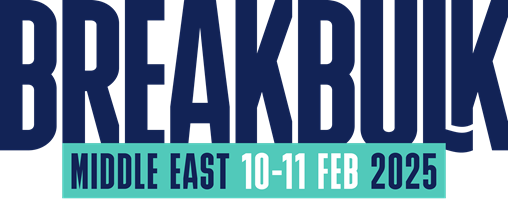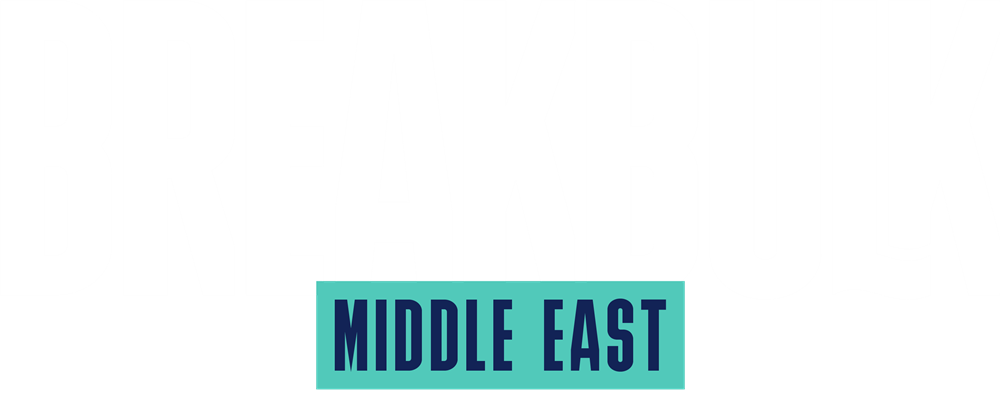Jul 14 | 2020
No aspect of life has gone untouched by the Covid-19 pandemic. Project cargo hasn’t avoided its affects.
The world continues to adapt to the “new normal” thrown up by the global situation. The Middle East is no different.
Here, we take a look at how project logistics and freight movement overall has been affected by coronavirus – and what the future may hold throughout the Middle East and North Africa.
Social distancing remains the watch word for logistics professionals throughout the Middle East.
Restrictions such as road checkpoints, distancing where possible dockside at maritime facilities, and so on, have slowed regional freight movement.
For example, road borders into the United Arab Emirates have been closed to traffic from international routes for several months. Only traffic from Oman is allowed through.
Saudi Arabia had a similar procedure in place for UAE-sourced road freight up to June 2020. Any cargo on UAE-plated trucks had to be shifted to a Saudi-registered unit for transportation at the border into Saudi Arabia.
Despite these measures, freight does continue to flow throughout the Middle East.
Ports have played a key role in this. Jebel Ali port, for instance, has remained active throughout the pandemic, being a major terminal for cargo movement of all shapes and sizes.
Abu Dhabi seaports are operational, but with limited staff, and the story is much the same around the region.
For instance, at Jebal Li, the following measures are in place:
• Social distanced workforce.
• Increased cleaning and disinfection.
• Arranging accommodation for employees near work.
• Arriving and departing ship crews must also provide health updates, pass through thermal cameras and get harbormaster’s approval before embarking or disembarking from vessels visiting the port.
According to a deugro report, however, equipment availability in UAE and the wider region has been impacted.
Some carriers require prenotice to provide equipment for export volumes. This can be attributed to the lack of capacity deployed to the Middle East due to Covid-19 and Ramadan lull in business (stretching from April 23 to May 23, 2020).
Gopal R, global vice president, transportation and logistics practice at consultancy Frost & Sullivan, has predicted how the Middle East could respond, trade-wise, in the coming months.
Talking to Gulf Business, he said: “The Covid-19 challenge is expected to have an acute impact on demand and supply for close to three months, and it will possibly take another three months to recover.
“From a supply chain and logistics perspective, things are likely to rebound in Q3 in terms of freight capacities across key trade lanes. Storage needs may nevertheless undergo shifts in location and pattern of requirement.
“It is likely the composition of future freight modes will also likely see changes as recovery sets in. The demand pattern will also see changes, both in consumption pattern as well as supply locations. These will need to be considered when realising the new norm.”
The industry is likely to change in other crucial ways, such as increased digitization as well as greater reliance on autonomous applications and big data.
“Digital connectivity will rationalize, replace and reinvent physical and social connectivity and accelerate innovation in new business models,” Gopal said.
Regional powerhouses are beginning to lead the way in ensuring a digital-first future for their operations.
DP World, the region’s busiest port operator, launched new online logistics tools and services, covering sea, land, and air shipping around the world, in April 2020.
Its new platform enables freight forwarders and cargo owners to book services globally using a combination of transport modes. DP World said it accelerated the already planned roll-out of digital platforms to help companies meet the challenge of the Covid-19 crisis and keep trade flowing – including vital food and medical supplies.
“Our new platforms are moving the management of moving cargo online. It will enable our customers to be more efficient and increase the visibility and predictability of supply chains. This will help them to grow their businesses, and ultimately keep countries supplied with the vital goods they need in the crisis,” said Mike Bhaskaran, DP World’s chief operating officer for logistics and technology.
Ultimately, the post-Covid landscape will revolve around the ability of freight forwarders, ports, terminals and cargo owners to be adaptable.
A respond-reset-rebound strategy has been suggested by Gopal in order for companies throughout the Middle East to ride the peaks & troughs coming from the new after-corona world:
• Respond – Focus on addressing current issues, keeping teams and capabilities in force, setting up quick response teams and tackling capacity challenges for clients.
• Reset – Put in place systems to gain advance demand visibility, understand the diversification of supply chain by customers and prepare for it, and adapt with digital connectivity solutions to compensate and improve productivity.
• Rebound – Evaluate source of future opportunities, re-strategize business models to create flexible solutions that can withstand contraction as well as scalability and build contingency plans
.
Breakbulk Middle East is where the project cargo opportunities are, as well as the region’s largest gathering of sector professionals.
In these trying times, Breakbulk Middle East will return to continue supporting the regional and global project cargo industry.
2021’s event is even more important given the big changes Covid-19 has made to global logistics. Here’s how:
• It’s the place where networking gets done and relationships are reinforced – vital in these trying times.
• Taking place in February, the event is perfectly timed to relaunch your business and strengthen your fiscal year 2021 forecasts.
• Government figures, private sector oil and gas companies are here too – the people that decide your next contract.
Want in on the action for yourself? Book your stand and become a Breakbulk exhibitor.
If you have further questions or queries on how we can help you during these interesting times, please contact us.
Here, we take a look at how project logistics and freight movement overall has been affected by coronavirus – and what the future may hold throughout the Middle East and North Africa.
Project cargo, Covid-19 & the Middle East
Restrictions at key logistics hubs means safe working and freight movement
Social distancing remains the watch word for logistics professionals throughout the Middle East.
Restrictions such as road checkpoints, distancing where possible dockside at maritime facilities, and so on, have slowed regional freight movement.
For example, road borders into the United Arab Emirates have been closed to traffic from international routes for several months. Only traffic from Oman is allowed through.
Saudi Arabia had a similar procedure in place for UAE-sourced road freight up to June 2020. Any cargo on UAE-plated trucks had to be shifted to a Saudi-registered unit for transportation at the border into Saudi Arabia.
Despite these measures, freight does continue to flow throughout the Middle East.
Ports have played a key role in this. Jebel Ali port, for instance, has remained active throughout the pandemic, being a major terminal for cargo movement of all shapes and sizes.
Abu Dhabi seaports are operational, but with limited staff, and the story is much the same around the region.
For instance, at Jebal Li, the following measures are in place:
• Social distanced workforce.
• Increased cleaning and disinfection.
• Arranging accommodation for employees near work.
• Arriving and departing ship crews must also provide health updates, pass through thermal cameras and get harbormaster’s approval before embarking or disembarking from vessels visiting the port.
According to a deugro report, however, equipment availability in UAE and the wider region has been impacted.
Some carriers require prenotice to provide equipment for export volumes. This can be attributed to the lack of capacity deployed to the Middle East due to Covid-19 and Ramadan lull in business (stretching from April 23 to May 23, 2020).
When Will the Trade Sector Rebound?
Gopal R, global vice president, transportation and logistics practice at consultancy Frost & Sullivan, has predicted how the Middle East could respond, trade-wise, in the coming months.
Talking to Gulf Business, he said: “The Covid-19 challenge is expected to have an acute impact on demand and supply for close to three months, and it will possibly take another three months to recover.
“From a supply chain and logistics perspective, things are likely to rebound in Q3 in terms of freight capacities across key trade lanes. Storage needs may nevertheless undergo shifts in location and pattern of requirement.
“It is likely the composition of future freight modes will also likely see changes as recovery sets in. The demand pattern will also see changes, both in consumption pattern as well as supply locations. These will need to be considered when realising the new norm.”
The industry is likely to change in other crucial ways, such as increased digitization as well as greater reliance on autonomous applications and big data.
Digitization Key to Post-Covid Cargo Landscape
“Digital connectivity will rationalize, replace and reinvent physical and social connectivity and accelerate innovation in new business models,” Gopal said.
Regional powerhouses are beginning to lead the way in ensuring a digital-first future for their operations.
DP World, the region’s busiest port operator, launched new online logistics tools and services, covering sea, land, and air shipping around the world, in April 2020.
Its new platform enables freight forwarders and cargo owners to book services globally using a combination of transport modes. DP World said it accelerated the already planned roll-out of digital platforms to help companies meet the challenge of the Covid-19 crisis and keep trade flowing – including vital food and medical supplies.
“Our new platforms are moving the management of moving cargo online. It will enable our customers to be more efficient and increase the visibility and predictability of supply chains. This will help them to grow their businesses, and ultimately keep countries supplied with the vital goods they need in the crisis,” said Mike Bhaskaran, DP World’s chief operating officer for logistics and technology.
Embracing the 3 Rs: Respond, Reset, Rebound
Ultimately, the post-Covid landscape will revolve around the ability of freight forwarders, ports, terminals and cargo owners to be adaptable.
A respond-reset-rebound strategy has been suggested by Gopal in order for companies throughout the Middle East to ride the peaks & troughs coming from the new after-corona world:
• Respond – Focus on addressing current issues, keeping teams and capabilities in force, setting up quick response teams and tackling capacity challenges for clients.
• Reset – Put in place systems to gain advance demand visibility, understand the diversification of supply chain by customers and prepare for it, and adapt with digital connectivity solutions to compensate and improve productivity.
• Rebound – Evaluate source of future opportunities, re-strategize business models to create flexible solutions that can withstand contraction as well as scalability and build contingency plans
.
Breakbulk Middle East Will Continue to Support the Project Cargo Sector
Breakbulk Middle East is where the project cargo opportunities are, as well as the region’s largest gathering of sector professionals.
In these trying times, Breakbulk Middle East will return to continue supporting the regional and global project cargo industry.
2021’s event is even more important given the big changes Covid-19 has made to global logistics. Here’s how:
• It’s the place where networking gets done and relationships are reinforced – vital in these trying times.
• Taking place in February, the event is perfectly timed to relaunch your business and strengthen your fiscal year 2021 forecasts.
• Government figures, private sector oil and gas companies are here too – the people that decide your next contract.
Want in on the action for yourself? Book your stand and become a Breakbulk exhibitor.
If you have further questions or queries on how we can help you during these interesting times, please contact us.


